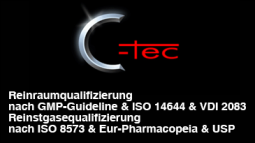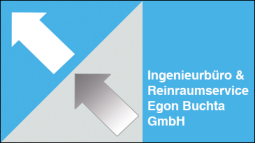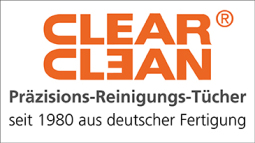Circular Economy 4.0 – a megatrend for mechanical engineering and plant construction
POWTECH 2020 Special Edition
- Industry knowledge and trend themes at the POWTECH 2020 Special Edition
Almost all transformational industries rely on mechanical procedures for processing powders, granulates and bulk solids. Such procedures are also an established element in the treatment processes used in recycling. In a current study by German Mechanical Engineering Industry Association VDMA, Dr Eric Maiser, head of the VDMA Future Business Competence Centre, and other specialists have analyzed this field, which is much broader than mere recycling. The result of the study outlines a megatrend for mechanical engineering and plant construction – Circular Economy 4.0. This challenge is also being addressed by POWTECH, the leading exhibition for mechanical process engineering. The Special Edition of POWTECH, adapted as a consequence of the global Covid-19 pandemic, will be held in Nuremberg from 30 September to 1 October 2020, and focuses this year on knowledge sharing, including the question of the circular economy.
The facts are there to be seen: waste volumes are on the rise at a global level, resources are dwindling, and the climate balance is sounding the alarm. The concept of the circular economy is therefore gaining in importance, both for society and politics, and for companies in every industry. Drawing a lesson from material flows in nature, this involves prolonging the useful life of the product to include extensive re-use. “That goes far beyond mere recycling,” comments Maiser. “Reduce, repair, re-use and refurbish are all key stages before material becomes waste. Digitalization is a tool that can help to turn this vision into reality and also make it happen faster.”
Greater independence from raw material markets
The circular economy is doubly relevant for mechanical engineers and plant manufacturers, since they are both customers and solution providers. “For businesses, the circular economy is hugely important, not only from the perspective of energy and resource efficiency, corporate social responsibility and climate protection: it is also important for sustainability to make economic sense. Going easier on resources makes businesses less dependent on volatile raw material markets and curbs costs,” explains Frederike Krebs, Adviser Technical, Environmental & Sustainability Affairs in VDMA’s Europe office and VDMA Coordinator for the Circular Economy.
Although the circular economy offers huge environmental and economic potentials, these are still far from being used to the full. “Currently, only 14 percent of the raw materials used in industry are recycled materials, or recyclates,” says Professor Anke Weidenkaff, Director of the Fraunhofer Institute for Materials Recycling and Resource Strategies (IWKS). “Too little use is still being made of the possibilities available for repairing, re-using and refurbishing materials. That is especially the case with plastics and composites or electronic waste. New technologies like self-healing processes, debonding and sorting can produce critical improvements. There are still barriers, however, in the form of insufficiently scalable process technologies, quality standards for secondary raw materials and excessive costs.”
Battery recycling as a textbook example
An example of how this can work very well is provided by Pallmann, a POWTECH exhibitor, which offers systems for processing car batteries. Since car batteries have an average service life of just 3½ years, separation by type and proper disposal of harmful substances play a vital role. With an average weight of 15 kg and a recoverable lead content of around 55 percent, the lead component adds up to more than 100,000 tonnes per year in Germany alone. The recovery process keeps this lead in the cycle. The acid is collected and processed, and the plastic casings are shredded. The polypropylene and polyvinyl chloride that are recovered are regenerated and used as secondary raw materials.
Digitalization can be a catalyst for the circular economy
Industry 4.0 and Big Data now offer a range of opportunities to improve the suitability of products for the circular economy along the entire value chain. When gathering and marketing data on the composition of secondary raw materials, for example, or when supply and demand are brought together via an automated market and logistics platform. “Digitalization creates incentives for companies to participate and can act as a driver,” comments Maiser. “A coordinated digitalization offensive could inspire all players: hardly any leading environmental market benefits from digitalization as much as the circular economy: it has the potential to be the key tool for spreading and accelerating the circular economy and creating new opportunities through new business models.”
Fundamental change
The form the circular economy could take in the mechanical engineering and plant construction industry by 2030 was the subject of the scenario study “Circular Economy 4.0”, published in 2019 by VDMA Future Business in collaboration with the Fraunhofer Institute for Systems and Innovation Research (ISI). This suggests mechanical engineers and plant manufacturers are facing a fundamental change: “The circular economy of the future will go far beyond today’s waste and recycling economy,” observes Dr Björn Moller of Fraunhofer ISI. “After all, the circular economy is based on the entire value chain. That means there will be a major need for new collaborative arrangements in the future. But all manufacturing businesses will also have to review their business models and turn them on their head if necessary.”
POWTECH 2020 Special Edition: Safe Networking
The Special Edition of POWTECH 2020 will also reflect these new challenges associated with Circular Economy 4.0, and exhibitors will be able to discuss potential solutions with the trade visitors. Following the global impacts of the coronavirus pandemic, this year’s edition has a particular focus on knowledge sharing. At the heart of the POWTECH Special Edition are the trade forums, which will be held in two exhibition halls with due observance of all safety regulations. The accompanying exhibition will give all exhibitors the opportunity to present their innovations in an efficient and appealing manner. Predefined stand designs and spacious meeting areas will guarantee the observance of all hygiene and safety regulations. Following the event, parts of the programme will be made available online for participants.
NürnbergMesse GmbH
90471 Nürnberg
Germany









